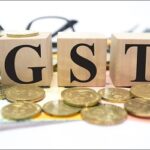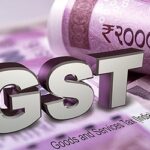The Institute of Chartered Accountants of India (ICAI) has submitted its suggestions for the Union Budget 2025 and released a detailed Pre-Budget Memorandum focusing on Direct and International Taxation. This comprehensive memorandum aims to address critical issues faced by taxpayers and professionals, and proposes actionable solutions to simplify compliance and promote tax equity.
For detailed insights into ICAI’s recommendations and their potential impact on various stakeholders, access the memorandum through the link below.
1. Section 16(ia) – Standard Deduction from salary income – Need for regular enhancement of standard deduction on the basis of cost inflation index as per the default tax regime
Provision of Law
Salaried employees are allowed standard deduction u/s 16(a) @ Rs. 75,000 or the amount of salary, whichever is lower, under the default tax regime u/s 115BAC(1A) to cover expenses incurred during the course of the employment. If they opt out of the default tax regime and pay tax as per the normal provisions of the Act, then the standard deduction u/s 16(a) would be Rs.50,000 or the amount of salary, Whichever is lower.
Issue
There are various expenses that the employees incur during the course of employment which they cannot claim as deduction. At the same time, the few exemptions that are available to them u/s 10 are subject to upper limits which have been fixed several years back and virtually serve no purpose on account of inflation.
Employees during the course of their employment incur various expenses, including for upgrading skill, for rendering their services as employees, deduction for such expenses needs to be enhanced every year.
Ideally, standard deduction may be revised every year on the basis of cost inflation index i.e. standard deduction to be revised annually based on CII.
For avoiding leakage of revenue, such deduction under the default tax regime may be linked to cost inflation index just like as it happens for income under the head capital gains.
Suggestion
It is suggested that the standard deduction u/s 16(ia) under the default tax regime under section 115BAC(1A) may be enhanced keeping in mind the rate of inflation and purchasing power of the salaried individuals. It may be linked to cost inflation index for regular enhancement in deduction amount similar to deduction available for computing long-term capital gains.
2. Section 17(2)(vi) – Taxation of ESOP in case of employees of eligible start-ups – Request for deferral of taxability for all start ups registered with DPIIT
Provision of Law
As per section 17(2)(vi), the value of any specified security or sweat equity shares allotted or transferred, directly or indirectly, by the employer, or former employer, free of cost or at a concessional rate to the assessee is included in the employee’s salary as a prerequisite.
As per section 156(2), where the income of the assessee includes income of the nature specified in section 17(2)(vi), and such specified security or sweat equity
shares referred to in the said clause are allotted or transferred directly or indirectly by the current employer, being an eligible start up referred to in section 80-IAC, the tax and interest on such income included in the notice of demand under section 156(1) shall be payable within 14 days –
(i) After the expiry of 48 months from the end of the relevant assessment year; or
(ii) From the date of the sale of such specified security or sweat equity share by the assessee; or
(iii) From the date of the assessee ceasing to be the employee of the employer who allotted or transferred him such specified security or sweat equity share, whichever is earliest.
Issue
The deferment in collection of tax on specified security or sweat equity shares exercised by employees of ‘eligible start ups’ (i.e. start-ups set up on or after 1st April 2016 approved by Inter Ministerial Board of Certification as notified by the Central Government for claiming benefit under section 80-IAC) will benefit only a fraction of employees registered with The Department for Promotion of Industry and Internal Trade (‘DPIIT’).
The provision provides for taxation of perquisite of specified security or sweat equity shares in the year of allotment/transfer of shares whereas the collection of tax is deferred to future date, which is 14 days from the date of
a) completion of 48 months from the end of the relevant assessment year.
b) shares are sold; or
c) employee leaves the employment of the eligible start up,
whichever is earliest.
As per section 140A read with section 156, it appears that that notice of demand will be raised on the employee, but it will be enforced on a future date. Reference to payment of ‘interest’ by the employee in section 140A and section 156(2) leads to uncertainty with respect to the employee’s liability to pay interest since there is no corresponding amendment in section 234A or 234B.
Suggestion
It is suggested that –
(i) Tax deferral on specified security or sweat equity shares may be extended to employees of all start-ups registered with DPIIT.
(ii) Instead of issue of demand notice followed by deferment of collection, a scheme can be enacted on similar lines as that of section 45(2) dealing with conversion of capital asset into stock-intrade where the income is quantified in the year of conversion but the taxation is deferred till the year of sale of converted asset/completion of 48 months from the end of the relevant assessment year/on leaving employment of the eligible start up, whichever is earliest. The trigger for taxation of perquisite can itself be on the happening of any of the prescribed events.
If, however, the provision is retained in current form, consequential amendments may be made in section 234A, 234B and 220(1) to clarify that employee’s liability to pay interest gets triggered only in case the employer fails to deduct tax within the prescribed deferment period.
3. Section 17(2)(iii) – Perquisite taxable in the case of specified employees – Salary threshold of Rs.50,000 no longer relevant and may be removed
Provision of Law
Section 17(2) contains the inclusive definition of “perquisite”. Sub-clause (iii) thereof provides that the value of any benefit or amenity granted or provided free of cost or at a concessional rate, inter alia, by any employer to an employee whose income under the head “Salaries”, exclusive of the value of all benefits or amenities not provided by way of monetary payment, exceeds Rs.50,000. The threshold of Rs.50,000 has been effective from 1.4.2002. Sub-rules (2) to (6) of Rule 3 provide for valuation of perquisite specified in Section 17(2)(iii).
Issue
Section 17(2)(iii) providing for a salary threshold of Rs.50,000 for falling within the ambit of “specified employee” is not of any relevance in the current context, after more than 22 years.
Suggestion
It is suggested that clause (iii) of section 17(2) may be made applicable to all employees irrespective of salary threshold. The individual sub-rules (2) to (6) could provide some individual threshold above which the value of benefit would be chargeable to tax as prerequisite.
4. Section 10(12B) – Benefit of tax-free withdrawal from NPS to both employee and non-employee subscribers under section 10(12A) – Similar provision to be incorporated in section 10(12B)
Provision of Law
Section 10(12A) provides for an exemption of upto 60% of the total amount payable to an assessee contributing to the NPS on closure of his account or on his opting out of the scheme. In cases of partial withdrawal from NPS, section 10(12B) provides for exemption of upto 25% of contributions made by an employee.
The benefit of exemption under section 10(12A) which was initially available only to employees had been extended by the Finance Act, 2018 to all assessees, in order to provide a level playing field to both employee and nonemployee assessee subscribers.
Issue
Till now, however, a similar provision has not been introduced in respect of benefit of exemption under section 10(12B), consequent to which such benefit of exemption in case of partial withdrawal continues to be restricted to employees alone.
To provide equity between the employee and non-employee subscriber, similar provision may be incorporated in section 10(12B) to extend the benefit available thereunder to non-employee subscribers.
Suggestion
It is suggested that the amendment as made in section 10(12A) may also be made in section 10(12B) thereby extending the benefit of exemption in case of partial withdrawal to non-employee subscribers as well.
5. Section 10(13) – Payment from approved superannuation fund – Exemption to be extended to amount received on voluntary retirement
Provision of Law
Section 10(10AA) provides for exemption for payment received as cash equivalent of leave salary in respect of earned leave period at the time of retirement whether on superannuation or otherwise.
Section 10(13) provides for exemption with regard to payment from an approved superannuation fund. Section 10(13)(ii) provides for exemption in the hands of the employee in respect of the amount received on commutation of the annuity in case of retirement at or after a specified age or on becoming incapacitated prior to such retirement
Issue
Section 10(13), however, does not cover commutation of an annuity paid on voluntary retirement of the employee. Section 10(10AA), as mentioned above, has taken care of such case by using the terminology “or otherwise”.Since the intention of the law makers is clear by the wordings of section 10(10AA), section 10(13)(ii) may be appropriately amended to include the words “or otherwise”. This will provide relief to genuine taxpayers who are taking voluntary retirement.
Suggestion
It is suggested that section 10(13) may be amended to exempt commuted value received by an employee from the superannuation corpus standing to his credit at the time of voluntary retirement, by including the words “or otherwise” in line with section 10(10AA) of the Income-tax Act, 1961.
Source: https://resource.cdn.icai.org/83621dtc67465.pdf







